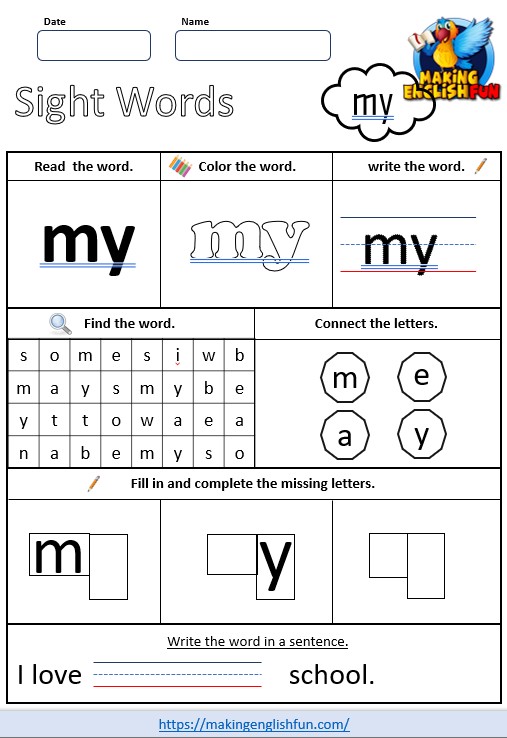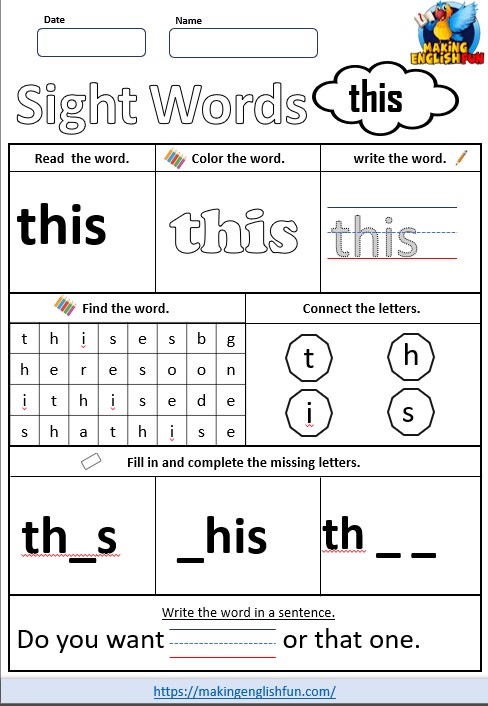How To Learn English Quickly
The desire to learn English can motivate you and make you impatient. Learning a language requires time and effort, as you need to remember grammar rules, vocabulary, and correct pronunciation. But can you speed up the process? Is there a way to learn English more quickly?
To learn English quickly as an adult, set specific, attainable, time-based goals as motivation. Take one-on-one English lessons, and practice actively every day. Focus on vocabulary and speaking, and accept your mistakes. Immerse yourself in English through travel, listening, and reading. Have fun.
Even though children can learn a language quickly, it is possible to learn English as an adult. Follow these top 10 tips to learn English quickly and give yourself a head start in achieving your goals.
10 Top Tips To Learn English Quickly
These top 10 tips come from other students learning English:
- Use Your Goals To Motivate Yourself
- Take Relevant Language Classes
- Practice Actively Every Day
- Learn New Vocabulary
- Focus on Speaking, Not Grammar
- Don’t Be Afraid To Make Mistakes
- Surround Yourself With English
- Read English All The Time
- Spend time In An English-Speaking Country
- Have Fun

How To Learn English Quickly
Let’s look at the top 10 tips in more detail and see how you can apply them to speed up your study of English.
Use Your Goals To Motivate Yourself
The most important determiner of success in learning English is your motivation. You will only learn quickly and effectively if you have the will and desire to do so.
Being motivated means having a goal to work towards – if you want to learn English quickly, there must be a reason. Here are some of the reasons students gave for studying English:
- I want to get a job where I need to speak English.
- I’d like to attend college, but the course is in English.
- We’re going on holiday to Australia, and I want to talk to people.
- My new boyfriend g Girlfriend speaks English.
These are excellent reasons to learn English, but they are too broad as aims. You need to break down this general aim into smaller goals that will take you there step by step. Examples of smaller goals are:
- I want to have a B2 level of English within three months.
- I want to make a short speech for my boyfriend’s birthday in July.
- Before my holiday, I will be able to greet people and ask for directions in English.
These goals are all:
- Specific: the goal has one clear, concrete outcome.
- Time-based: the goal has a manageable deadline appropriate for your learning pace.
- Attainable: the goal is not too challenging for you to manage.
- Realistic: you have the time, money, and other resources available to achieve the goal.
You can then break down the goal into daily, weekly, and monthly targets to motivate and allow you to progress.
These are some of the smaller goals that other English students set for themselves:
- My daily goal for this week is to revise my vocabulary for 20 minutes.
- I will have an English conversation with my classmates every afternoon.
- I want to learn five new travel-themed phrases this week.
If you don’t achieve a goal, try again. The effort is as important as achieving the goals.
Celebrate and take pride in yourself as you accomplish each goal, then set new ones to motivate yourself.
Take Relevant Language Classes
To learn a language quickly, it is best to take classes that match the goals you have set yourself. For example, take a business English course if you aim to learn English for your workplace. For informal situations, look for an English conversation course.
Working with a qualified, native-English-speaking teacher or tutor will speed up your learning as they have experience in the best methods and resources for learning English fluently, quickly, and effectively.
They will also have classes aimed at the correct level. Taking a course that is too difficult for you and you can’t keep up is no use. Equally, a beginner’s class for an intermediate speaker is too easy and a waste of time.
There are three main types of English classes:
- Attend a language school: Language schools focus on teaching second and foreign language students English in ability-based groups. If you have time and money, attending a language school abroad is the best option for learning English quickly.
- Take online classes: Several online language schools and private tutors can teach you English individually. A one-on-one tutor will customize a course for you and fit it around your schedule. These classes work well for people with short-term goals who need a flexible learning system.
- Do a language exchange: Language exchanges are a way for two people to learn each other’s language. You could teach your partner Spanish while your language partner teaches you English.
- Take a self-Learning course: There are online programs for you to teach yourself English. While this is the cheapest and most convenient route, it is not the fastest way to learn English.
Practice Actively Every Day
You need to make a daily commitment to practice English to learn English quickly – a weekly class will not be enough.
Learning English quickly means putting in daily effort because:
- Learning becomes a daily habit.
- You build your skills and vocabulary quickly.
- Repetition and revision help consolidate what you’ve learned and keep it fresh to move on to the next level.
Your daily practice must be active and deliberate, meaning spending time studying and revising what you have learned in your class or with your tutor. This will ensure that you are learning at the correct level and won’t tackle work that is too easy or challenging.
What you do during active daily practice will depend on your personal language goals. Here are some ideas:
- If your goal is to make a speech at your boyfriend’s birthday party, practice your pronunciation by learning sounds that are difficult for you: for example, watch YouTube videos of native speakers using the sounds and slow down the speed to hear and repeat them. Many learners of English struggle with the R and L sounds, for instance.
- If your goal is to understand a tour guide on holiday, listen to YouTube videos of an appropriate level and pause them every 20 seconds to write down what you’ve heard.
- If your goal is to read a newspaper in English, start by reading beginner’s or children’s books every day and build up your skills.

Learn New Vocabulary
A cornerstone of learning a new language is developing as much vocabulary as possible. Language experts suggest that there are 800 most-used words in English, which will help you navigate up to 75% of English.
To learn vocabulary, you need to record new words in a way that is easy for you to revise and then actively practice them as much as possible. For example:
- Organize vocabulary according to the theme, rather than alphabetically, such as travel, birthdays, friends, etc.
- Create your own personal vocabulary dictionary.
- Draw mind-maps to revise each theme.
- Make small flashcards you can go through on the bus or train while commuting.
- Many vocabulary apps make learning accessible and easy, for example, Tinycard, Memrise, Word Power Lite, and Quizlet.
However, learning single words out of context is not the quickest way to expand your vocabulary. Try these approaches:
- Learn phrases, not words: Individual words may have many different meanings, so instead, learn groups of words that belong together and have a clear context. For example, the word “discount” is handy, but knowing the phrase “at a discount” is more practical.
- Learn whole sentence structures: You will learn grammatical structures more quickly if you get used to using them. For example, learn “Make yourself at home” rather than just the word “home.”
Focus On Speaking, Not Grammar
The quickest way to learn a language is to begin speaking as soon as possible, preferably with native or fluent speakers.
Speaking is all about communication, so don’t hold back because of your accent, a lack of vocabulary, and or beginner grammar skills. You learn very quickly through speaking, and your confidence will grow immensely.
How can you practice speaking English?
- If you are in a class, participate enthusiastically and use the vocabulary and grammar rules you are learning.
- Practice speaking English with other students or friends in a language club or exchange.
- Have conversations with an English tutor via the web. iTalki and HelloTalk are valuable resources.
- If possible, practice speaking and listening with native speakers in real and relevant daily life. This practice helps you place language in context, understand its relevance, and connects your studies to the real world.
Don’t Be Afraid To Make Mistakes
As you practice your English through classes, active study sessions, online, or with friends, allow yourself to make mistakes. Making mistakes is an entirely normal and natural part of learning a new language, especially if you are trying to learn quickly.
Here’s some advice about making mistakes for English students:
- Making mistakes when speaking means you are trying to communicate, which is the aim of language learning. Ask for feedback from those you’re talking to, your teacher, and your friends. Do you need more practice speaking? How will you do that?
- If you make mistakes in your written work, go back to see what you did wrong and then redo the task so that you don’t repeat the errors. Do you need additional study materials?
- Reflect on whether you are spending enough time on your studies. You need daily practice to learn English quickly.
Please don’t be discouraged or pessimistic about making mistakes; learn from them.
Surround Yourself With English
Apart from doing active daily study, it is beneficial to hear English around you as much as possible.
Language acquisition occurs through formal learning and practice, but also unconsciously, when busy with other tasks, so long as you can hear English.
This way of learning is typical of children learning to speak, as they mimic and absorb language almost effortlessly.
It is more challenging for adults, but your brain still absorbs sounds, words, phrases, and patterns without understanding.
Create your own immersive world if you’re not in an English-speaking environment where you hear English conversations, announcements, and music.
Here are some ideas from foreign learners of English:
- Listen to English music or the radio while doing chores. Music helps as you pick up snatches of the lyrics and find yourself singing them – you are picking up grammar patterns without thinking.
- Keep English-language radio or TV on, even when you’re not watching. The pronunciation will filter through.
- Watch sports with the English commentary.
- Watch favorite TV shows with subtitles.
- Watch YouTube videos in English, for instance, on your hobby, which you can understand by watching even if you can’t follow the words.

Read English All The Time
Another way of surrounding yourself with English is to read as much as possible. There are two ways to do this.
First, you can include reading in your active daily studies, so long as your material is at an achievable level. Your teacher or tutor will likely provide you with reading materials. Graded readers are available, with relevant content for adults. Children’s books are also lovely to read, as many of them include beautiful illustrations.
Second, use reading as part of your immersive experience. Just as you can surround yourself with English sounds, surround yourself with English words. Unlike active practice, you don’t need to be able to read everything.
Here are suggestions from other English students living in an English-speaking country:
- Read English roadsigns.
- Notice any newspaper headlines or billboards in English.
- Look at advertisements and brochures in English.
- Look at the information on products you buy.
- Read menus in English.
If you’re not in an English-speaking country, create your own world:
- Label items in your home with their English names.
- Look at recipes in English.
- Page through English magazines on topics that interest you, for instance, cricket.
- Browse through easy-reading English websites, like those on celebrity gossip.
- Read a favorite book translated from your native language into English.
- Set your mobile and social media to English.

Spend time In An English-Speaking Country
Spending time in a country where English surrounds you is a great privilege and helps you learn English far more quickly.
If you have the resources, attend a language course in an English-language country.
Remember that there are English-speaking countries apart from the UK and US: Canada, Australia, New Zealand, South Africa, and Kenya all have English speakers galore.
Have Fun!
Learning a language needs to be fun if you are going to be successful. Yes, your goal will motivate you but having fun at the same time will make you even keener.
English-language students made this list of ways to make learning English fun and fast:
- Celebrate achieving your goals, even if they’re small ones.
- Use online resources to learn English via topics you’re interested in. There are endless TED talks, YouTube videos, and websites on any possible subject.
- Relive your childhood by watching cartoons in English.
- Play board games in English, such as Clue or Monopoly. Graduate to Scrabble as you learn to spell.
- Start a Book Club to share and discuss what you’ve read in English.
- Have a supper where each person explains the dish they’ve cooked.
We have a series and collection of articles offering advice, tips and tricks and how to Learn English Effectively and Quickly and how long it takes to learn English. You can access them on the list below.
- How long does it take to learn English.
- How to Learn English effectively
- How to teach Yourself English
Can You Learn English At Any Age?
You can learn English at any age – it is never too late to start studying a new language.
However, there are advantages and disadvantages to learning when younger and older:
- Children acquire language more easily through “natural” exposure.
- Adults acquire language more easily through formal education.
Advantages Of Learning English When Younger
Learning a language as a young child, especially in a bilingual family setting, is easier than learning a second language as an adult. This kind of language acquisition is “natural” and unconscious as children speak two or three languages.
It is also easier for children to become fluent in a foreign language when immersed in a new environment, such as emigration to an English-speaking country. Although children may start slowly, they are more likely than adults or teenagers to become as fluent as native speakers.
Children learn language more quickly because of the neuromuscular mechanisms active in children under 12, which allow for the quicker development of pronunciation and intonation. In addition, children have a higher capacity for imitation, learning, and memory than adults.
Apart from their extensive physical capability to learn, children are more flexible and spontaneous than adults, more tolerant of others, and willing to communicate with them. Making mistakes is part of everyday life, and children will use non-verbal cues to aid their communication.
Advantages Of Learning English When Older
In a formal classroom setting, teenagers and adults have the advantage when learning a language. It will take immense input and time for children to learn a language with classes just a couple of hours a week.
However, adults learn faster in this kind of setting. They have the advantages of cognitive maturity, experience learning other language and language systems, and the ability to accumulate and compare grammatical and syntactic patterns. Adults have an existing foundation of knowledge to build on and can acquire more complex information.
Adults’ motivation to learn a new language and attitude towards learning can also play a decisive part in successful language acquisition. The drive for education, professional development, social integration, or prestige can considerably influence learning capability.
Conclusion
Adults can successfully learn new languages and become fluent quickly, with motivation and daily effort. To learn English quickly, take classes, work on your vocabulary, and practice speaking, listening, and reading.
Don’t be hard on yourself when you make mistakes – the experience should be fun.
Resources
- https://www.britishcouncil.org/voices-magazine/five-habits-effective-english-language-learners
- https://www.ef.com/wwen/blog/language/how-to-learn-english-faster/
- https://www.fluentu.com/blog/english/how-to-learn-english-faster/
- https://www.fluentin3months.com/how-to-learn-english-fast/
- https://preply.com/en/blog/learn-english-fast-and-easy/
- https://termcoord.eu/2017/05/age-factor-second-language-acquisition/








2 Comments